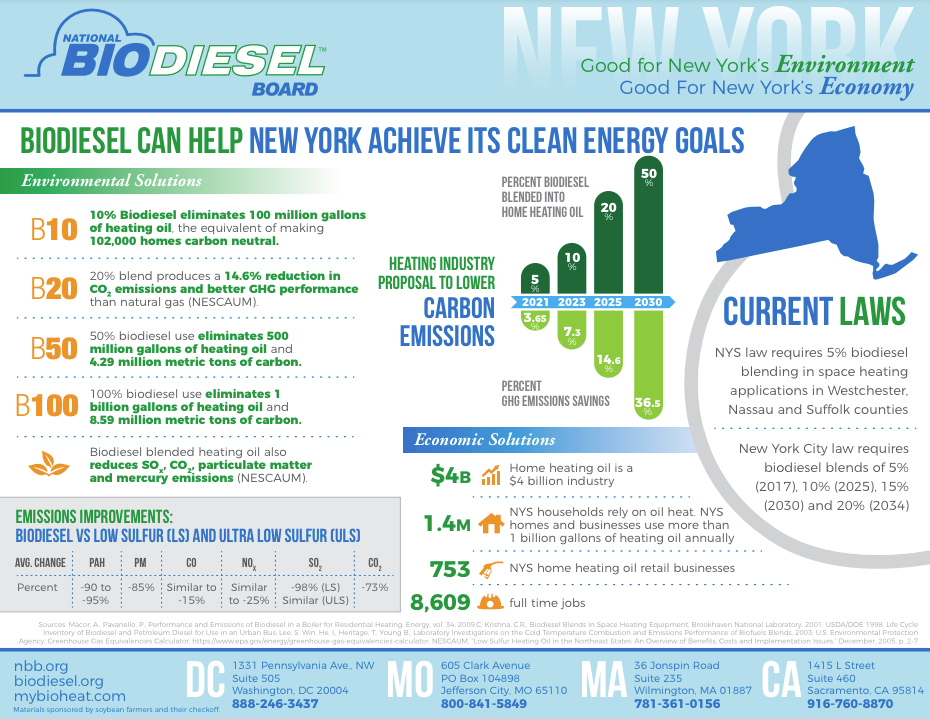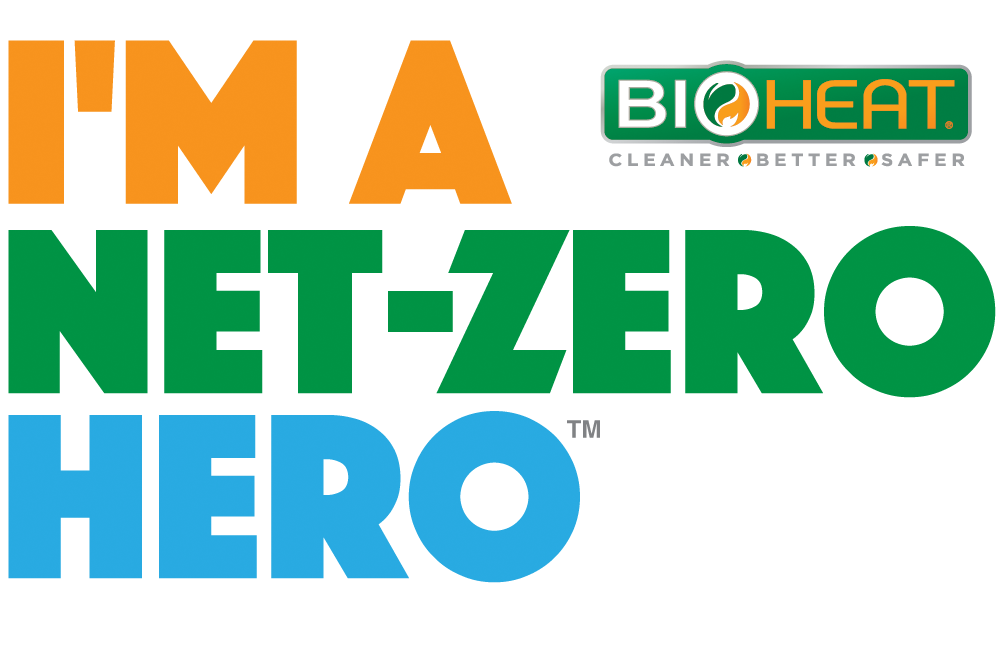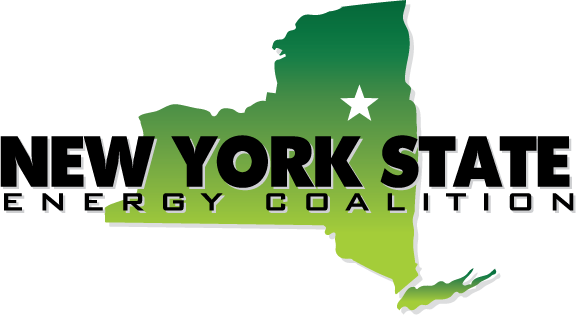New York, Connecticut and Rhode Island move to adopt progressive standards for lower-carbon home heating

Liquid heating fuel is on track to continue reducing its carbon footprint across the Northeast U.S. In recent weeks, the state legislatures of New York, Connecticut and Rhode Island passed bills that would create new biofuel blending standards for all liquid heating fuel sold in each state.
The New York bill calls for liquid heating fuel sold throughout the state to contain at least 5% biodiesel (B5) or renewable diesel by July 1, 2022, 10% in 2025 and 20% in 2030. Connecticut and Rhode Island go even further. Connecticut’s bill implements a minimum blend of 5% by July 1, 2022, 10% in 2025, 15% in 2030, 20% in 2034 and 50% in 2035. Rhode Island, which already has a B5 standard for liquid heating fuel, would increase its minimum blend to 10% by July 1, 2023, 20% in 2025 and 50% in 2030.

NEW YORK
2022: B5
2025: B10
2030: B20

CONNECTICUT
2022: B5
2025: B10
2030: B15
2034: B20
2035: B50

RHODE ISLAND
CURRENT: B5
2023: B10
2025: B20
2030: B50
 New York State already requires all liquid heating fuel sold in Westchester County and Long Island to contain 5% biodiesel. New York City also requires B5 and was scheduled to increase its minimum blend to B10 in 2025, B15 in 2030 and B20 in 2034. The new bill would replace these requirements and call for more biofuels sooner across the whole state. Rhode Island's existing blending standard would be expanded to include renewable diesel as well.
New York State already requires all liquid heating fuel sold in Westchester County and Long Island to contain 5% biodiesel. New York City also requires B5 and was scheduled to increase its minimum blend to B10 in 2025, B15 in 2030 and B20 in 2034. The new bill would replace these requirements and call for more biofuels sooner across the whole state. Rhode Island's existing blending standard would be expanded to include renewable diesel as well.
Net-Zero Heroes — homeowners and renters, heating fuel dealers and wholesalers, biofuel blenders and producers, public servants and environmental advocates — have embraced biodiesel-blended heating fuel aka Bioheat® fuel as a means to achieve significant and immediate carbon reductions. Bioheat® fuel replaces fossil fuel with lower-carbon biodiesel and can be used without modifications to existing home heating equipment, thereby delivering deep environmental and economic benefits “right here, right now.”
New York, Connecticut and Rhode Island have laws and policies in effect calling for steep emission reductions over the coming decades, including net-zero emissions by 2050. The new biofuel blending standards were designed to help these states reach their climate goals without economically burdening underserved communities.
It’s estimated that Connecticut’s B50 standard would reduce the state’s petroleum use by 238 million gallons and eliminate 2 million metric tons of carbon emissions. That's equal to the emissions of 5 billion miles driven by an average passenger vehicle. A B50 standard in New York, which the state’s heating fuel industry supports, would reduce carbon emissions by 4.29 million metric tons, the equivalent of over 10 billion miles driven.
On behalf of the entire Net-Zero Hero movement, we would like to congratulate the residents, businesses and policymakers of New York, Connecticut and Rhode Island for a job well done. The passage of these bills is a critically important step on the path to a more equitable and sustainable net-zero future.


